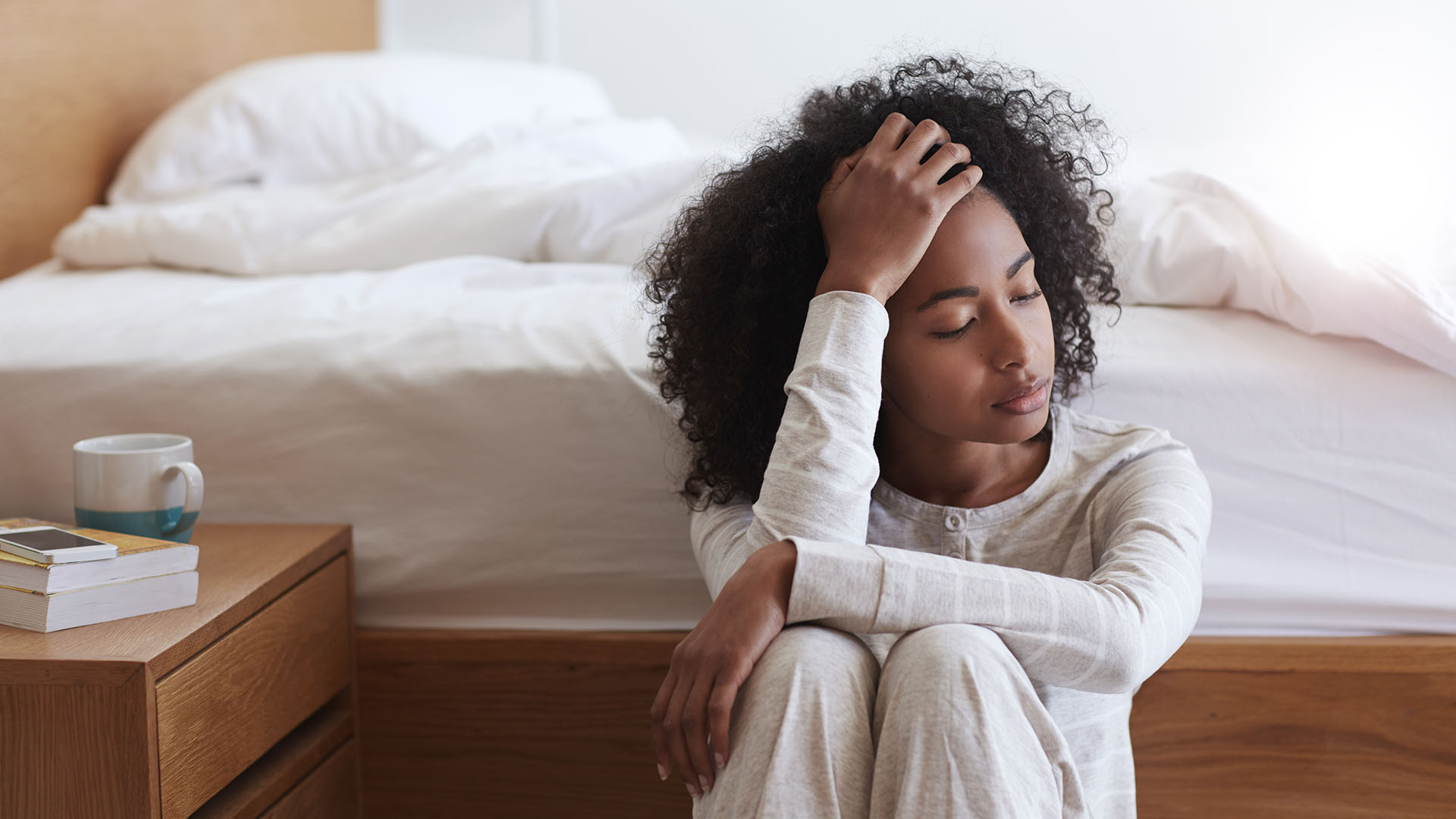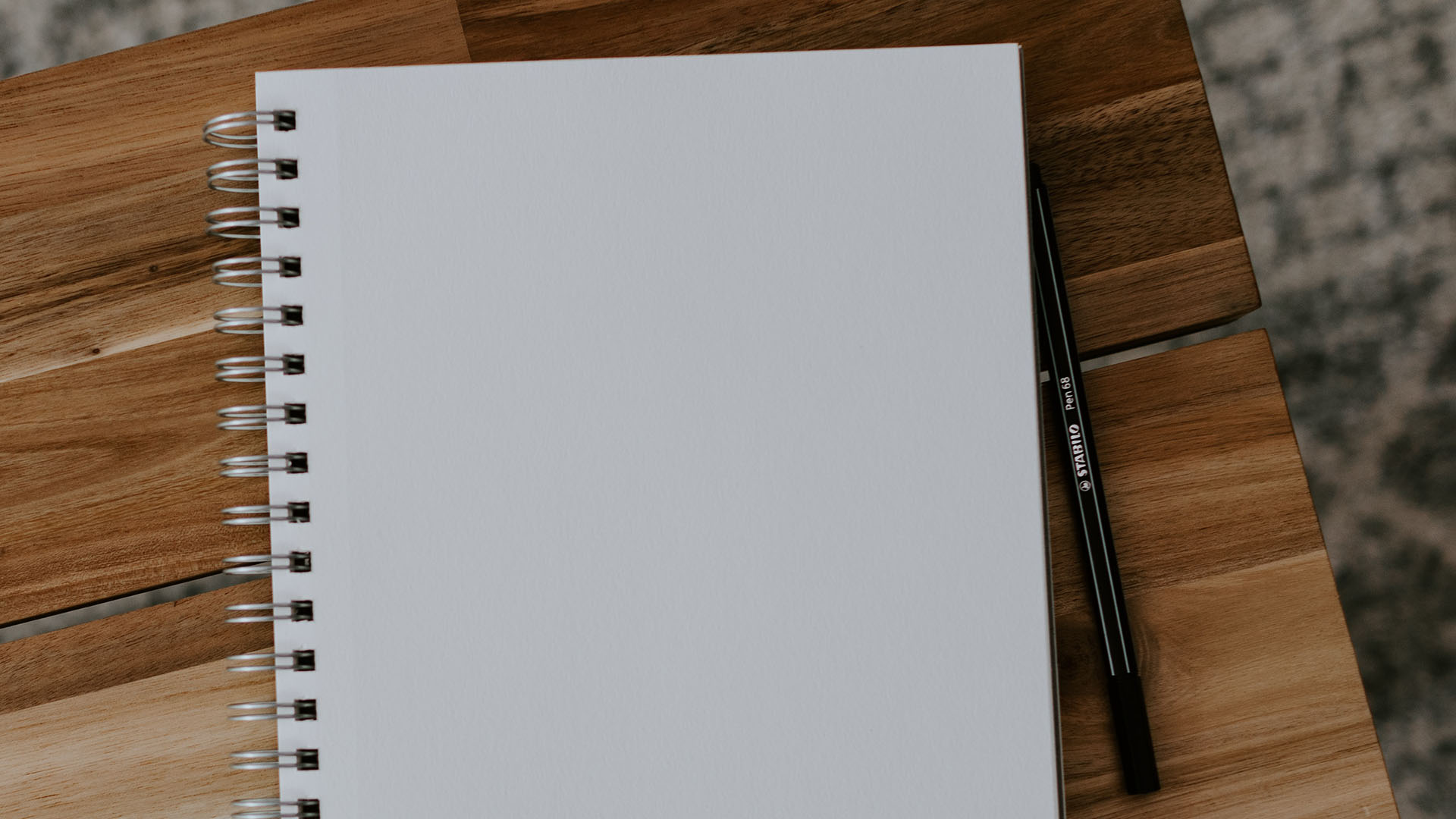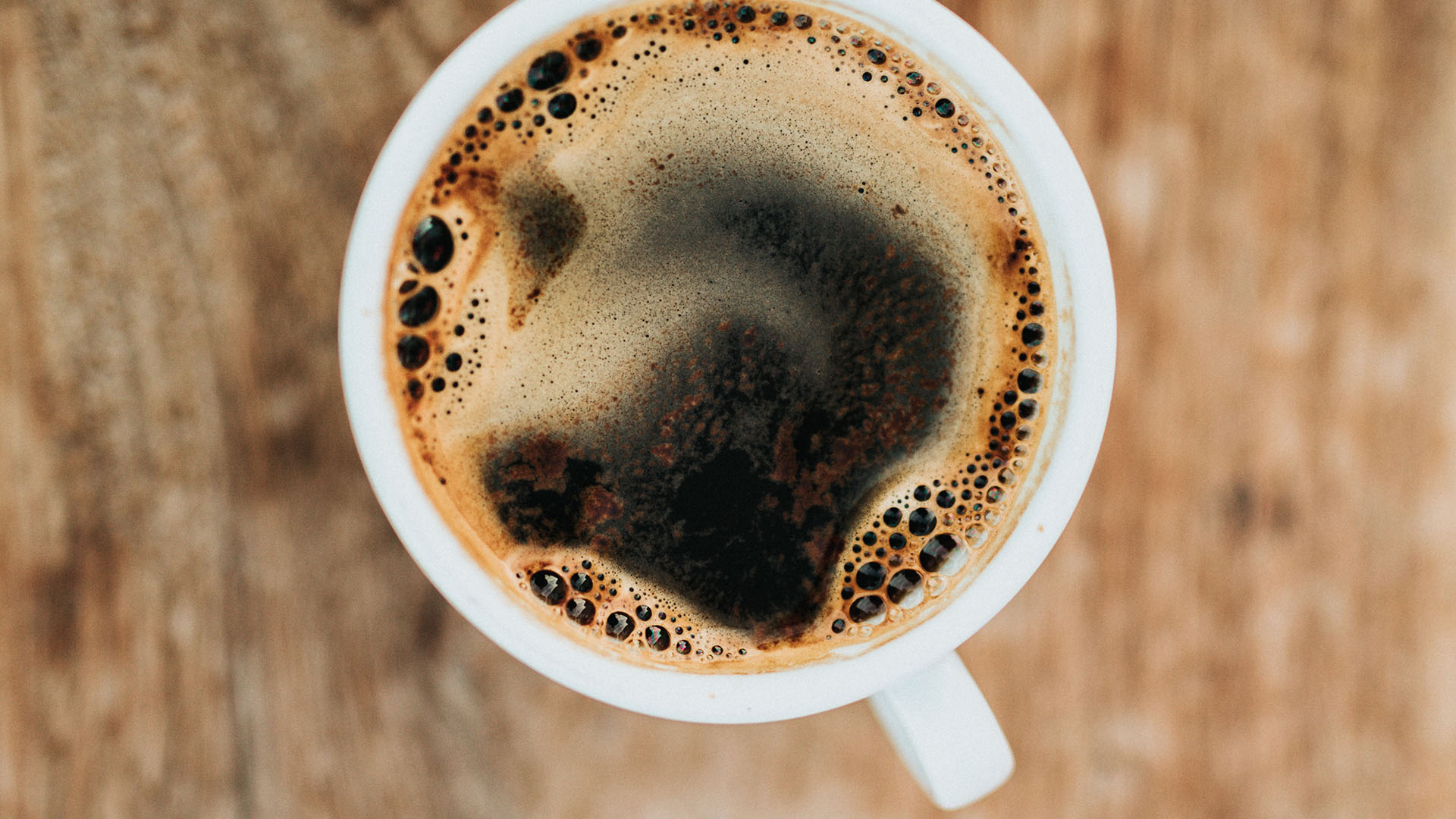7 tips for better sleep when you're feeling anxious
Break the vicious circle of anxiety and sleeplessness with these tips

The current state of the world is enough to give anyone a degree of anxiety, especially if you're staring down the barrel of a cost of living crisis and wondering how on earth you're going to pay your energy bills. And while anxiety itself is bad enough, it can rob you of your sleep too.
Google searches for 'how to sleep when stressed' peak at 4am, suggesting that a lot of us are being kept awake at night by anxiety, and most likely feeling worn out the next day, which can be the start of a vicious circle of sleep deprivation.
"Sleep is such an essential part of our daily routine," says Mattress Online sleep expert, Steve Adams. "Not only does it help us process the information we've taken in during the day, but the consequences that follow a disrupted night's sleep can include anything from irritability and a lack of focus to physical and mental health issues."
If you're already feeling anxious, piling sleep deprivation on top of that is a guaranteed way to make things worse. "Worrying too much about your levels of sleep can, ironically, keep you awake," says Adams. "You then risk the situation spiralling, leading to more negative outcomes."
It doesn't have to be this way, however. Adams points out that it's important not to be too hard on yourself for missing sleep, and further suggests that with the right bedtime routine – as well as some lifestyle adjustments – can reduce the negative effects that anxiety can have on your sleep.
Ensuring you get a good night's sleep every night can make it a lot less difficult to deal with the state of everything right now. And even if the having the best mattress or best pillow isn't making any difference, these tips from Mattress Online – in partnership with The Sleep Charity – can help you catch more zzzs in these turbulent times.
1. Create a calming bedtime routine
A regular bedtime routine is a great way to tell your brain that it's time to relax and switch off. Start with a warm shower or bath, then get into some comfortable nightwear and put your phone into 'Do not disturb mode'; needless to say, avoid checking the news and doomscrolling through Twitter.
Get daily insight, inspiration and deals in your inbox
Sign up for breaking news, reviews, opinion, top tech deals, and more.
Other things that can help you unwind include a mindful skincare routine, giving yourself a foot massage, spritzing your bedding with a bit of lavender essential oil, or unwinding with a few chapters of a book or some soothing music. And don't underestimate the power of a few minutes of meditation for calming racing thoughts, particularly before bed. Nostalgia can help sleep, so try thinking of a favorite childhood memory (or mentally returning to your 'happy place').
Importantly, whatever routine you adopt, you should do it consistently, every night, to create your own personal bedtime routine that'll help you sleep well.
2. Write down your thoughts before bedtime
A head full of unwanted thoughts and worries is just the thing to keep you from falling asleep. However if you take the time to write them down in a journal, simply seeing them written down makes it easier to process them rather than going over them endlessly in your mind.
Similarly, making a to-do list for the next day is another way to de-stress before bed, while if you wake up in the night with troubling thoughts, write them down in your journal so you can go back to them in the morning, rather than letting them bounce around your brain all night.

3. Declutter your bedroom
A clutter-free bedroom is a much more relaxing environment to fall asleep in; by taking the time to clear way stuff gathering dust on your bedside table, putting away that pile of clothes and sorting out any lurking laundry, you'll feel more in control of your sleeping space. Start with smaller tasks and work through them, then work up to the bigger stuff, and you'll end up with a bedroom with fewer unwanted distractions, that's a lot better geared towards relaxing and switching off at night.
- How to sleep when you're stressed: 4 techniques to try
4. Avoid naps during the day
If you've lost sleep in the night, the temptation to snuggle up under one of the best weighted blankets for a nap can be overwhelming at times. However catching up on sleep during the day can affect your ability to fall asleep at night, and you can end up seriously disrupting your sleep cycle. That said, if you really need a nap, try to keep it short – 30 minutes at most – and before 3pm so you don't mess up your sleep schedule.
5. Take regular exercise – at the right time
Yes, exercise can help you sleep better as well as lifting your mood with an endorphin rush, but exercising at the wrong time can make things worse. Exercise in the evening can overstimulate your body, which makes it harder to fall asleep. So if you must exercise in the evening, make sure you do it at least two hours before bedtime; this will give your body time to wind down ready for sleep. (Here's more on when to stop exercising before bed.)
6. Avoid alcohol, caffeine and junk food
Alcohol and junk food can feel like an inviting coping mechanism when times are tough, but they can heighten your anxiety and affect your sleep, especially if combined with excessive caffeine intake during the day. For less disruptive evening consumption, opt for a calming chamomile tea and a light dinner, eaten at least two hours before bedtime. And to avoid overstimulating your body, try to avoid coffee and caffeinated beverages after 3pm.

7. Get professional help
Ultimately, if anxieties about money, work, relationships or the state of the world are affecting your sleep and your daily life, the best help can come from speaking to a healthcare professional and getting the support you need. Sleep is vital for good physical and mental health, so if you're regularly struggling with sleepless nights, try speaking to your GP.
Read more:
A professional writer with over a quarter of a century's experience, Jim has been covering mattress and sleep-related subjects for TechRadar, Tom's Guide and T3 over the past few years, gathering an in-depth knowledge of the workings of the mattress industry along the way. Previously Jim has covered a wide variety of subjects, working widely in the tech and gaming sectors, and more recently covering the design and wellness industries.
